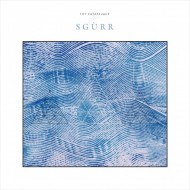 After dabbling with Thy Catafalque over the past few releases I have to say: nothing quite prepared me for this. The band has always been an interesting one to watch thanks to main man Tamás Kátai’s fairly unique blend of electronica, folk melodies, black metal and all with a progressive edge that produces something which is at times heavy and dark and at other times relentlessly pastoral. Therion and maybe Orphaned Land, would be good starting comparisons. Well, to summarise, I’m not sure what he had for breakfast the morning he went to the studio to record Sgùrr. But gone are the meandering compositions and the brooding Arcadian folk vocals. And in comes 40 minutes of pure adrenaline.
After dabbling with Thy Catafalque over the past few releases I have to say: nothing quite prepared me for this. The band has always been an interesting one to watch thanks to main man Tamás Kátai’s fairly unique blend of electronica, folk melodies, black metal and all with a progressive edge that produces something which is at times heavy and dark and at other times relentlessly pastoral. Therion and maybe Orphaned Land, would be good starting comparisons. Well, to summarise, I’m not sure what he had for breakfast the morning he went to the studio to record Sgùrr. But gone are the meandering compositions and the brooding Arcadian folk vocals. And in comes 40 minutes of pure adrenaline.
It’s like the Floydian study in introverted sound of previous missives has all been flipped inside out just to see how the audience would react – the keys, the chords, the drums, the riffs – and then crank it up and repeat until you can see their heads explode. Sgùrr plays like one complete track built around giant surges of music. Around these columns of sound the rest of the album swirls like dancing worshipers in an elemental temple of buzzing riffs, detonating melody, breakbeat percussion and gigantic, hovering shoegaze guitars. Sound a bit weird? Well, Kátai certainly hasn’t lost his knack for a bit of progressive, avant-garde composition. But if by avant-garde you raise those cynical eyebrows as if to imply some tiresome, directionless, jazzy nonsense then you would be much mistaken. Because if this doesn’t send a shiver down your spine on any cold rainy autumn morning, then your soul may be beyond redemption.
The first couple of tracks act like a warm up with a brief spoken word intro followed by an upbeat musical tableau of violins and guitars which lead nicely into Sgùrr’s first towering, rapturous moment. Although it’s already picking the pace and the mood up nicely into what is to follow. Track 3, Oldódó Formák a Halál Titokzatos Birodalmában, builds a hypnotising, layered sound clash which is part repetitive electronic percussion and part droning black thrash spliced with eastern melody that is instantly addictive. The track fades into a drifting haze of tremolo guitar which just about manages to slow your pulse before cranking up again for the 15 minute track’s finale.
Another brief interlude lowers the tempo again – but only in preparation for the next even more explosive rush of sound – track 5, Élő Lény. This time round the intensity barely lets up for the remainder of the album.- with variations of the same thrashing riff leaving you slightly disoriented, not quite sure whether you’re in the same track or if the album is now progressing to its finale. The chaos melts away again finally near the end of the seventh track – and you’d be forgiven for wondering what on earth just hit you and at exactly what point on the album things kicked off to create the storm that just came over your stereo.
Sgùrr is full on. A meeting of everything that Thy Catafalque represents – verdant, dark pastures, rising suns; dark cities, strange philosophies – wrapped up in a spinning loom of sheer blissful rapture. Up until now I’d say I was intrigued by the wilful individuality of Thy Catafalque. Impressed even at those progressive platters of off-key moods and otherworldly arrangements even if I could never shake the feeling that he was holding something back… Well he was – and it’s this.
It’s not that this shrugs all that has gone before off by any means. But it’s like experiencing the one percent of the band at its euphoric best for a few brief moments that somehow, when you look up at the clock on the wall when the music stops, has swallowed 40 minutes of your life. Maybe he took the red pill instead of the blue pill on his way to the studio that fateful morning. Black metal, meets Hungarian folk music meets the intensity of early nineties rave. I know what you’re thinking – “Someone had to do it eventually, I suppose”. Me too. But I never quite imagined that it would sound like this.
(9/10 Reverend Darkstanley)

Leave a Reply